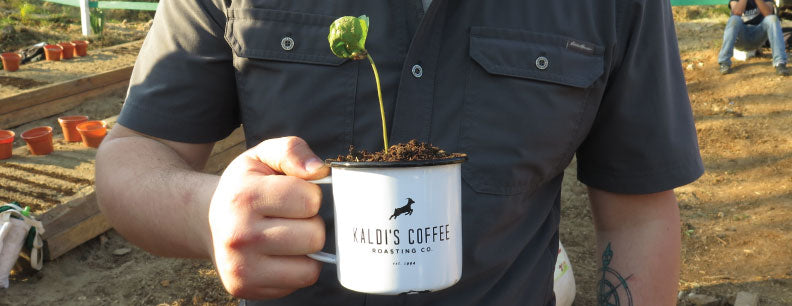Coffee is a global treasure that enriches countless lives. But its future, and the future of those who grow it, is increasingly endangered. For National Coffee Day, Kaldi's will be investing in a sustainable coffee future by donating 5% of all coffee sales to World Coffee Research.
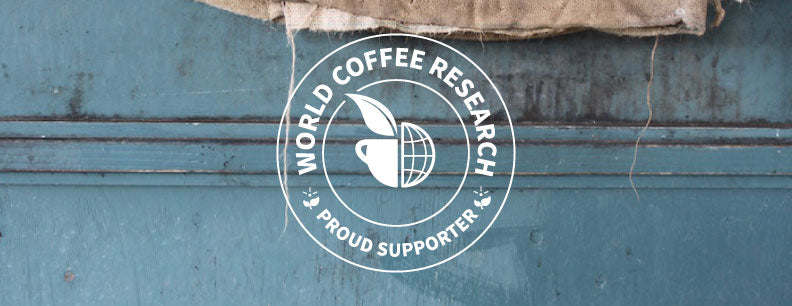
Specialty coffee touches more people every day. Its power to enthrall us seemingly has no limits, and the causes for its captivation of our attention are as plentiful as the people who drink it. For some it is its multiplicity of complex flavor possibilities. For others, it is its ancient power to sharpen the senses. For still others, it enlivens and enhances human connections. In many households and communities, it provides a near-spiritual ritual to awaken the day. On farms around the world, it is life itself.
For the past half-century in particular, the world has only begun to plumb the depths of this enchanting beverage. In 1994, when Kaldi’s first opened its doors, we could never have imagined a coffee fetching north of $800 per pound at origin, as this year’s Best of Panama top lot Geisha did. The thirst of coffee drinkers worldwide, including our many guests in St. Louis and the surrounding region, continues to grow for more interesting coffees, and many producers have benefited from coffees growing stature as a fine beverage.

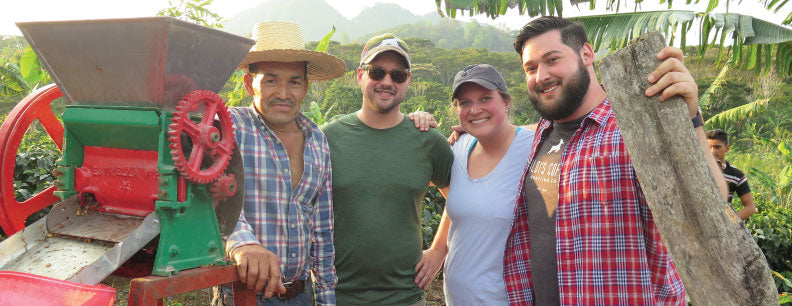
Yet, coffee’s future is increasingly imperiled. There is simply no guarantee that coffee as we have come to know it — specialty coffee in particular — will continue to be available in the way it is today. Some forecasts, in fact, say as much as 80 percent of land that is currently suitable for producing coffee could cease to be so by 2050. As coffee enthusiasts just like you, we’re unsettled by such stark figures. That’s why, on National Coffee Day, as we’re celebrating the beverage we love; we feel compelled to talk about protecting it.
The reasons for coffee’s endangered future are many — a convoluted web of historical, agricultural, scientific, and socio-political issues in need of solutions both intricate and far-reaching. They go far beyond something any one coffee company — whether an importer, exporter, roaster, or producer — can solve in isolation. This is why Kaldi’s partners with several of our importers to invest more than $10,000 each year to World Coffee Research, the world’s only research and development organization dedicated to protecting coffee’s future on a global scale.
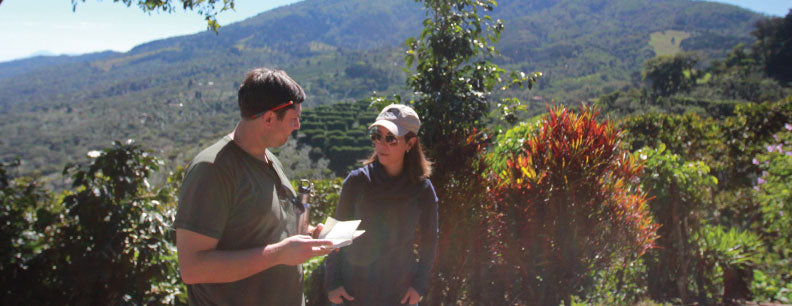
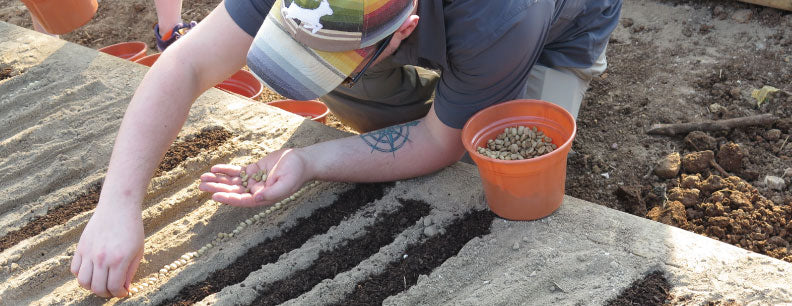
“Coffee is often described as an orphan crop,” says WCR’s partnership director, Greg Meenahan. “There are no parents really advocating, taking care of, and nurturing the plant.” Unlike other crops such as potato, corn, or anything else you find in the grocery store, coffee has not benefited from decades of advocacy, research, and development on its behalf.
“The problem is that coffee farmers are spread all over the world,” Meenahan adds. “They’re isolated, they’re in politically unstable countries very often, and they’re often poor, so all of those conditions mean that they have not had the capacity to be advocates for the coffee crop itself.” Worse still, these conditions have often meant that producing countries end up competing with one another and keeping secrets about best practices in growing coffee.
Since 2013, WCR has stepped in to be the advocate, and to bridge the knowledge gaps that currently exist among coffee growing countries. The organization came into being after the coffee leaf rust outbreak that occurred in 2012-13, an event which put a harsh spotlight on coffee’s precarious prospects. The more research that has been done since, the more disconcerting the picture has become. The threat to coffee’s future comes not only from poor support for its producers, but also from coffee’s paltry genetic diversity as it faces increasing risks from diseases like la roya, or coffee leaf rust, which continues to expand its reach as global climates change.
World Coffee Research is engaged in a vast array of projects aimed at top-notch research and development, and making the results of that R&D accessible for everyone with a stake in coffee’s future. Whether in coffee genetics and breeding new hybrid varieties, creating a global knowledge database detailing each coffee variety’s strengths, weaknesses, and ideal climate, or in on-the-ground work in farm development, WCR is funneling immense resources into coffee on every front. With their work, Meenahan says, they hope to see reduction of coffee’s arable land curbed to 20 percent instead of 80 percent.
Ultimately, this is not merely a plea to protect a beverage, but to invest in a sustainable future for those who grow the plant that gives us that beverage. Some farmers have already faced 80 percent reductions in some seasons’ harvests. Many have left coffee growing behind altogether. WCR’s work is critical if we’re to see a future anywhere near as rich in coffee and the people who grow it. Kaldi’s has joined many other coffee roasters in becoming an “adoptive parent” of coffee, in hopes that we will continue sharing and enjoying it with you for many years to come.
In honor of National Coffee Day, Kaldi’s is adding to its current ongoing donation by giving 5 percent of all coffee sales (online and in our cafes) from Saturday, September 29 to World Coffee Research. We’re also launching our latest Cupping Room Series coffee, the Costa Rica Fabio Ruiz Geisha, a delightful offering that represents coffee at its most complex and captivating. It’s a two-pronged way to celebrate coffee — enjoy one of its most captivating varieties and invest in its future. Sounds like a win-win to us.
